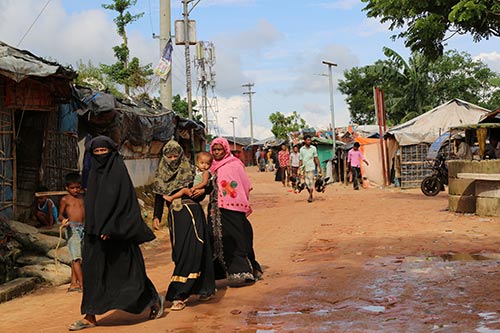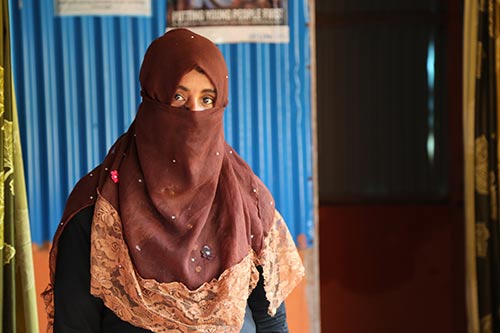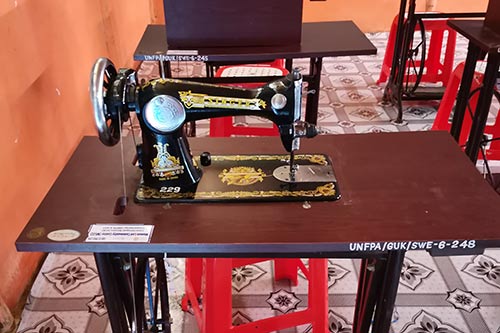News
The Rohingya influx, three years on
- 10 September 2020
News
COX’S BAZAR, Bangladesh – The 25th of August marked a tragic anniversary: three years since the mass influx of hundreds of thousands of Rohingya refugees into Bangladesh from neighbouring Myanmar.
Today, there are around 1 million Rohingya refugees living in Bangladesh. Nearly 90 per cent of them are living in a network of 30-plus camps in Cox’s Bazar District, where crowding and sanitation conditions leave them vulnerable to the COVID-9 pandemic.
But close collaboration between humanitarian partners – including UNFPA – and the Government of Bangladesh has managed to limit the spread of the coronavirus within the camps. By 26 August, some 3,927 positive cases of infection had been reported in Cox’s Bazar, but only 88 of them were within the refugee camps; the rest were within the broader host community.

Still, the situation is precarious, especially for women and children.
Pandemic-related movement restrictions have forced humanitarian actors to reduce activity in the camps. Despite these challenges, critical services – including sexual and reproductive health care and support for survivors of gender-based violence – have been maintained.
As of August, UNFPA’s support had included some 23 women-friendly spaces, 22 health facilities, 10 women-led community centres, 144 midwives, 594 community health workers, and a total of 224 volunteers from two NGOs.
Precautionary measures have been adopted to protect staff and clients in all of these facilities and spaces. For instance, UNFPA has established handwashing stations, distributed personal protective equipment and hand sanitizers to health workers, and instituted physical distancing practices.
Where possible, remote referral information and services are being provided.

At one UNFPA-supported health centre, a Rohingya refugee named Minara arrived with her newborn baby.
She explained that she initially began visiting the centre for family planning – UNFPA provides contraceptive counselling to help women made informed choices about whether and when to become pregnant.
“I have been here for three years, and I have used different types of contraceptive methods since then.” After deciding to become pregnant, she was able to receive antenatal care from the clinic.
Now, she says, “I get free care for my baby.”
Minara’s midwife, Rotna, arrived for their consultation wearing a mask and medical cap. She greeted Minara warmly.
Rotna explained that she receives continuous training from UNFPA and other partners, and is proud to be able to serve the Rohingya community.
“At the beginning it was hard because of the language barrier. I speak Bangla, and Minara speaks the Rohingya language. But step by step, visit by visit, we managed to understand one another, with me learning some Rohingya words and Minara learning some Bangla words.”
Now, she added, they have a sense of kinship. “It is a big sisterhood community here,” she said.

In Cox’s Bazar, women-led households are particularly vulnerable. Conservative norms mean women have fewer opportunities to earn a living, and their families suffer more economic insecurity.
Rokeya, a Rohingya woman, remembers struggling when she first arrived in Bangladesh with her children, after her husband was killed in Myanmar. She collected wood from the forest to sell for money. “It was not enough,” she said.
She learned to sew through a women’s centre, but life remains precarious: “Now, I am a skilled tailor, I received a tailoring kit but I do not own a sewing machine. Because of COVID-19, the women-led community centre was closed and I could not go there to use the sewing machine and earn some income.”
Still, she is cautiously hopeful that things will turn around. “A happy life for me is getting a job so that I can support my family and educate my children so that they can have a better future.”
The thought of a better future made Rokeya smile. But then, she added, almost to herself, “When?”